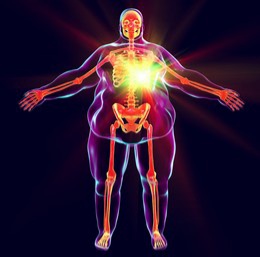Maintaining a healthy body weight and increasing HDL or ‘good’ cholesterol levels can help lower the risk of Covid-19 infections, claim researchers in a new study.
Previous studies showed that people with Type-2 diabetes and a high body mass index are at a greater risk of experiencing hospitalisations and other severe complications related to Covid-19.
However, the new research from the University of Maryland in the US has identified certain lifestyle factors like body weight and cholesterol as new risk factors for Covid-19.
“Our findings point to some healthy measures people can take to help potentially lower their risk of Covid-19 infection,” said Charles Hong, Professor of medicine at the University’s School of Medicine.
“Controlling body weight is very important during this time, and measures to increase HDL levels like regular exercise and a diet rich in monounsaturated fats like extra virgin olive oil and avocados might be helpful too,” Hong noted.
The team found that people, who were Covid positive, were more likely to be obese or have Type-2 diabetes. They were also at greater risk of getting symptomatic infection in the first place, the researchers claimed.
On the other hand, those who tested negative were more likely to have high levels of “good” HDL cholesterol and be at a healthy weight with a normal body mass index (BMI), revealed the study published in the journal PLoS ONE.
“Certain baseline cardiometabolic factors appear to either protect a person from Covid-19 infection while others make a person more vulnerable to infection,” Hong said.
“But this study wasn’t designed to determine what factors actually cause Covid-19 infections. These are statistical associations that point to the importance of a healthy functioning immune system for protecting against Covid-19 infection,” Hong added.
For the study, the team used data from the UK Biobank of 5,00,000 British volunteers over age 40. Health factors were compared between those who tested positive for Covid-19 and those who tested negative. #KhabarLive #hydnews







